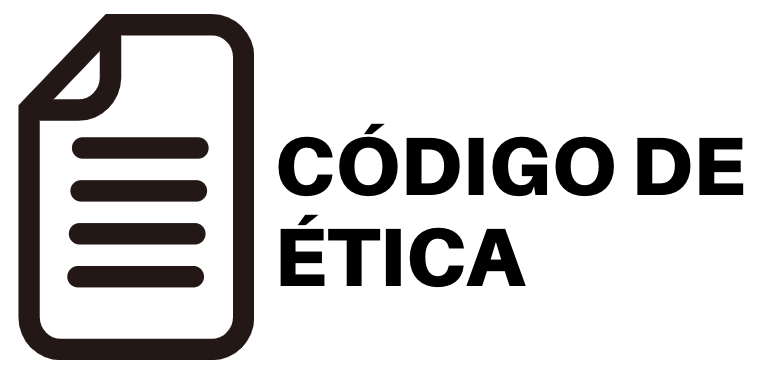The administrative manual as a device for systematizing organizational behavior and strengthening institutional performance
DOI:
https://doi.org/10.33936/psidial.v4i1.7694Keywords:
Hospital Management, Administrative Manuals, Ecology of Knowledge, organizational cultureAbstract
The present study has the general objective of establishing the components that define a manual of policies, rules, and administrative procedures for the Venezuelan Red Cross, Valencia Branch, aimed at contributing to the standardisation of processes and strengthening institutional performance from a managerial efficiency perspective. The research follows a qualitative, documentary-based approach, supported by content analysis of secondary sources—books, scientific articles, regulatory documents, and theses—which enabled a comprehensive understanding of the implications of hospital management in the structuring of administrative manuals, within a framework of the ecology of knowledge. The methodology, grounded in the works of Hurtado de Barrera (2010), Krippendorff (2018), and Gadamer (2004), facilitated a critical reading and hermeneutic interpretation of the analysed texts, allowing for the identification of patterns, categories, and key theoretical contributions. The study revealed that administrative manuals are strategic tools for modern organisational management, as they enhance operational coordination, staff training, decision-making, and the consolidation of a coherent institutional culture. Additionally, the incorporation of digital technologies—such as QR codes—is highlighted as an innovative means to facilitate access to and updates of these documents. Among the most relevant conclusions, it is emphasised that the systematisation of organisational knowledge through administrative manuals strengthens institutional responsiveness, promotes transparency, and improves operational efficiency. Their design and implementation should be regarded as a strategic investment that integrates knowledge, technology, and organisational culture.
Downloads
References
Cejas, M. F., Vásquez, E., & Chirinos, C. (2017). Administración del talento humano. La arquitectura estratégica de las organizaciones. Ediciones Espe. Ecuador.
Dávalos García, S. R., Cejas Martínez, M. F., Liccioni, E. J., & Vegas Meléndez, H. J. (2023). Caracterización de las competencias laborales del talento humano en las organizaciones: un factor clave en la gestión administrativa. Universidad Y Sociedad, 15(4), 120–127. https://rus.ucf.edu.cu/index.php/rus/article/view/3959
Gadamer, H. G. (2004). Truth and method (2nd ed.). Continuum.
Rena Yuliana & Syamsul Hadi Senen (2023). A Systematic Literature Review of Organizational Performance through Talent Management Strategis . West Science Journal Economic and Entrepreneurship Vol. 1, No. 12, December 2023, pp. 490~500
Hurtado de Barrera, J. (2010). Metodología de la investigación holística. Caracas: Quirón Editions.
Kianto, A., Sáenz, J., & Aramburu, N. (2017). Knowledge-based human resource management practices, intellectual capital and innovation. Journal of Business Research, 81, 11–20. https://doi.org/10.1016/j.jbusres.2017.07.018
Krippendorff, K. (2018). Content analysis: An introduction to its methodology (4th ed.). SAGE Publications.
Rodríguez, L. M., & Hernández, A. F. (2022). Administrative manuals as strategic tools for public management performance: Evidence from institutional reforms. Public Administration Review, 82(4), 694–708. https://doi.org/10.1111/puar.13378
Van der Voet, J., Kuipers, B. S., & Groeneveld, S. (2021). Implementing change in public organizations: The relationship between leadership and affective commitment to change in a public sector context. Public Management Review, 23(2), 264–288. https://doi.org/10.1080/14719037.2019.1699946
Velasco Vizcaíno , Martin Silvia , Cardenas Juan & Cardenas Marcelo (2021). Employees’ attitudes toward corporate social responsibility programs: The influence of corporate frugality and polychronicity organizational capabilities. Journal of Business Research.Volume 124, January 2021, Pages 538-546https://doi.org/10.1016/j.jbusres.2020.11.016.
Nonaka, I., Reinmoller, P.; Toyama, R. (2001). Integrated Information Technology Systems for Knowledge Creation. En: Dierkes, M., Berthoin Antal, A., Child, J.; Nonaka, I. (Eds.), Handbook of Organizational Learning and Knowledge (pp. 827-848). New York: Oxford University Press.
Downloads
Published
Issue
Section
License
Copyright (c) 2025 Nilda Isabel Chirinos de Sánchez, Magda Francisca Cejas Martínez, Ana Jacinta Anzola Bonalde, Juan Pablo Morales Corozo

This work is licensed under a Creative Commons Attribution-NonCommercial-ShareAlike 4.0 International License.





















